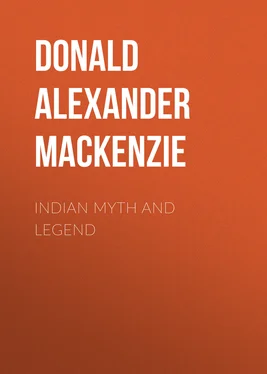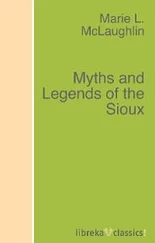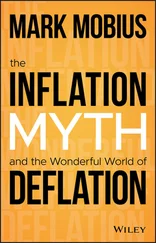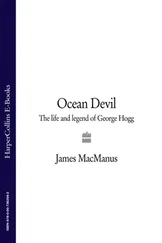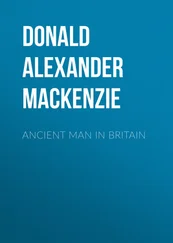Donald Alexander Mackenzie - Indian Myth and Legend
Здесь есть возможность читать онлайн «Donald Alexander Mackenzie - Indian Myth and Legend» — ознакомительный отрывок электронной книги совершенно бесплатно, а после прочтения отрывка купить полную версию. В некоторых случаях можно слушать аудио, скачать через торрент в формате fb2 и присутствует краткое содержание. Жанр: foreign_prose, foreign_religion, Философия, Мифы. Легенды. Эпос, foreign_psychology, foreign_antique, на английском языке. Описание произведения, (предисловие) а так же отзывы посетителей доступны на портале библиотеки ЛибКат.
- Название:Indian Myth and Legend
- Автор:
- Жанр:
- Год:неизвестен
- ISBN:нет данных
- Рейтинг книги:4 / 5. Голосов: 1
-
Избранное:Добавить в избранное
- Отзывы:
-
Ваша оценка:
- 80
- 1
- 2
- 3
- 4
- 5
Indian Myth and Legend: краткое содержание, описание и аннотация
Предлагаем к чтению аннотацию, описание, краткое содержание или предисловие (зависит от того, что написал сам автор книги «Indian Myth and Legend»). Если вы не нашли необходимую информацию о книге — напишите в комментариях, мы постараемся отыскать её.
Indian Myth and Legend — читать онлайн ознакомительный отрывок
Ниже представлен текст книги, разбитый по страницам. Система сохранения места последней прочитанной страницы, позволяет с удобством читать онлайн бесплатно книгу «Indian Myth and Legend», без необходимости каждый раз заново искать на чём Вы остановились. Поставьте закладку, и сможете в любой момент перейти на страницу, на которой закончили чтение.
Интервал:
Закладка:
Agni, the fire god, was closely associated with Indra, and is sometimes called his twin brother. The pair were the most prominent deities in Vedic times: about 250 hymns are addressed to Indra and over 200 to Agni.
Indra gave the “air of life” to men; Agni symbolized the “vital spark”, the principle of life in animate and inanimate Nature; he was in man, in beast, and fish; he was in plants and trees; he was in butter and in intoxicating Soma. The gods partook of the nature of Agni. In one of the post-Vedic Creation myths he is identified with the Universal soul; Brahma existed in the form of Agni ere the worlds were framed and gods and men came to be. Agni was made manifest in lightning, in celestial sun flames, in the sacred blaze rising from the altar and in homely household fires. The fire god was the divine priest as contrasted with Indra, the divine warrior.
In the Vedic invocations there are evidences that several myths had gathered round the fascinating and wonderful fire god. One hymn refers to him as a child whose birth was kept a secret; his mother, the queen, concealed him from his sire; he was born in full vigour as a youth, and was seen sharpening his weapons at a distance from his home which he had forsaken. 67Sometimes he is said to have devoured his parents at birth: this seems to signify that he consumed the fire sticks from which holy fire was produced by friction. Another hymn says that “Heaven and Earth (Dyaus and Prithivi) fled away in fear of (the incarnation of) Twashtri when he was born, but they returned to embrace the lion”. 68
Agni was also given ten mothers who were “twice five sisters”, 69but the reference is clearly explained in another passage: “The ten fingers have given him birth, the ancient, well-loved Agni, well born of his mothers”. 70
Dawn, with its darkness-consuming fires, and starry Night, are the sisters of Agni; “they celebrate his three births, one in the sea, one in the sky, one in the waters (clouds)”. Typical of the Oriental mind is the mysterious reference to Agni's “mothers” owing their origin to him. The poet sings:
Who among you hath understood the hidden (god)?
The calf has by itself given birth to its mothers.
Professor Oldenberg, who suggests that the waters are the “mothers”, reasons in Oriental mode: “Smoke is Agni, it goes to the clouds, the clouds become waters”. 71
7
AGNI, THE FIRE GOD
From a painting by Nanda Lall Bose
(By permission of the Indian Society of Oriental Art, Calcutta)
In his early humanized form Agni bears some resemblance to Heimdal, the Teutonic sentinel god, who has nine mothers, the daughters of sea-dwelling Ran, and is thus also a “son of the waters”; he is clad in silvern armour, and on his head is a burnished helmet with ram's horns. Horsed on his swift steed, Gulltop, he watches the demons who seek to attack the citadel of the gods.... His sight is so keen that he can see by night as well as by day.... Heimdal is loved both by gods and by men, and he is also called Gullintani because his teeth are of gold. There was a time when he went to Midgard (the earth) as a child; he grew up to be a teacher among men and was named Scef. Scef is identified as the patriarch Scyld in Beowulf , who came over the sea as a child and rose to be the king of a tribe. Mankind were descended from Heimdal-Scef: three sons were born to him of human mothers—Thrall, from whom thralls are descended; Churl, the sire of freemen, and Jarl from whom nobles have sprung. 72
In Mahabharata there is a fragment of an old legend which relates the origin of Karna, the son of Queen Pritha and the sun god: the birth of the child is concealed, and he is placed in a basket which is set afloat on the river and is carried to a distant country. 73
One of the Vedic references to Agni, as we have seen, suggests an origin similar to Karna of the epic period. He was connected with the introduction of agriculture like the Teutonic Scef, which signifies “Sheaf”. Agni is stated to have been “carried in the waters.... The great one has grown up in the wide unbounded space. The waters (have made) Agni (grow)”. 74Agni is “sharp faced” (i, 95); he is “the bright, brilliant, and shining one” (iv, i. 7); he is “gold toothed” (v, 22); he sees “even over the darkness of night” (i, 94. 7); he “makes all things visible”; he conquers the godless, wicked wiles; he sharpens his two horns in order to pierce Rakshasas (giants) (v, 2). “O Agni, strike away with thy weapons those who curse us, the malicious ones, all ghouls, be they near or far” (i, 94. 9). Heimdal blows a trumpet in battle; Agni is “roaring like a bull” (i, 94. 10).
As Heimdal, in his Scef-child form, was sent to mankind by the gods, “Matarisvan 75brought Agni to Bhrigu as a gift, precious like wealth, of double birth, the carrier, the famous, the beacon of the sacrifice, the ready, the immediately successful messenger.... The Bhrigus worshipping him in the abode of the waters have verily established him among the clans of Ayu. The people have established beloved Agni among the human clans as (people) going to settle (establish) Mitra” (i, 60). Oldenberg explains that people going anywhere secure safety by ceremonies addressed to Mitra, i.e. by concluding alliances under the protection of Mitra. Another reference reads, “Agni has been established among the tribes of men, the son of the waters, Mitra acting in the right way”. Oldenberg notes that Mitra is here identified with Agni; Mitra also means “friend” or “ally” (iii, 5. 3, and note). Scyld in Beowulf , the mysterious child of the sea, became a king over men. Agni “indeed is king, leading all beings to gloriousness. As soon as born from here, he looks over the whole world.... Agni, who has been looked and longed for in Heaven, who has been looked for on earth—he who has been looked for has entered all herbs” (i, 98). 76To Agni's love affairs upon earth there are epic references, and in the “Vishnu Purana” he is mentioned as the father of three human sons.
The reference to the Bhrigus, to whom Agni is carried, is of special interest. This tribe did not possess fire and were searching for it ( Rigveda , x. 40. 2). In another poem the worshippers of Agni are “human people descended from Manush (Manu)” (vi, 48. 8). The Bhrigus were a priestly family descended from the patriarch Bhrigu: Manu was the first man. Two of the Teutonic patriarch names are Berchter and Mannus.
Agni was the messenger of the gods; he interceded with the gods on behalf of mankind and conducted the bright Celestials to the sacrifice. The priest chanted at the altar:
Agni, the divine ministrant of the sacrifice, the greatest bestower of treasures; may one obtain through Agni wealth and welfare day by day, which may bring glory and high bliss of valiant offspring.
Agni, whatever sacrifice and worship thou encompassest on every side, that indeed goes to the gods. Thou art King of all worship.... Conduct the gods hither in an easy-moving chariot. 77
Like Indra, Agni was a heavy consumer of Soma; his intensely human side is not lost in mystic Vedic poetry.
Agni, accept this log, conqueror of horses, thou who lovest songs and delightest in riches....
Thou dost go wisely between these two creations (Heaven and Earth) like a friendly messenger between two hamlets....
His worshippers might address him with great familiarity, as in the following extracts:—
If I were thee and thou wert me, thine aspirations should be fulfilled.
If, O Agni, thou wert a mortal and I an immortal, I would not abandon thee to wrong or to penury: my worshippers should not be poor, nor distressed, nor miserable.
Интервал:
Закладка:
Похожие книги на «Indian Myth and Legend»
Представляем Вашему вниманию похожие книги на «Indian Myth and Legend» списком для выбора. Мы отобрали схожую по названию и смыслу литературу в надежде предоставить читателям больше вариантов отыскать новые, интересные, ещё непрочитанные произведения.
Обсуждение, отзывы о книге «Indian Myth and Legend» и просто собственные мнения читателей. Оставьте ваши комментарии, напишите, что Вы думаете о произведении, его смысле или главных героях. Укажите что конкретно понравилось, а что нет, и почему Вы так считаете.
